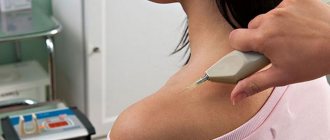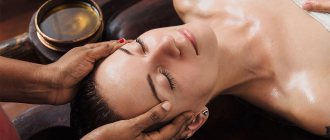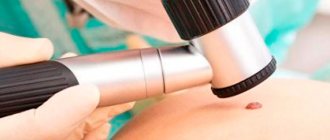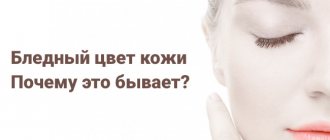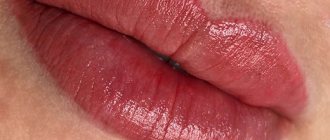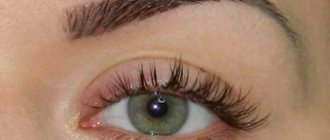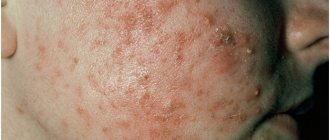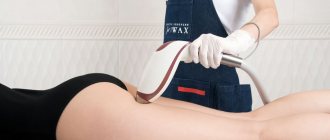Why do pimples appear and itch on the body?58
If small pimples all over your body itch, this may be a manifestation of one of the following dermatological diseases:
- Atopic dermatitis. It is a multifactorial inflammatory skin disease characterized by itching. The clinical picture of the disease may differ, including manifesting itself in the form of papules and vesicles.
- Bullous pemphigoid. The disease, as a rule, begins with the appearance of an erythematous, urticaria-like rash, papules, which are accompanied by itching.
- Vasculitis. The eczematoid type is characterized by the appearance of hemosiderosis, petechiae, eczematization (swelling, redness, papulovesicles, crusts), and the affected area is itchy.
- Dystrophic epidermolysis bullosa. The disease manifests itself from birth or from an early age. It is characterized by the formation of bubbles. In adults, the disease manifests itself in the form of plaques, lichenoid papules on the legs, and onychodystrophy. Severe itching provokes the appearance of milia and excoriations.
- Contact dermatitis. In addition to swelling, vesicles, and bullous rash, itching is also evident, sometimes the lesions hurt, and a burning sensation occurs.
- Hives. It may appear as small pimples on the body, they itch, and less often there is a burning sensation.
- Scabies is a parasitic dermatological disease
Small rash on the face - traditional methods and prevention
You can fight acne with traditional methods that have been proven over the years. Decoctions, infusions, steam baths and massage with aromatic oils are used.
Steam bath. To prepare a bath, you need to take in equal parts: chamomile, string, nettle. Mix these ingredients and pour boiling water. Bend over the container with the broth and cover your head with a towel. Sit over the steam for 10 minutes. This time will be enough for the sebaceous plugs to soften and the pores to open. This procedure can be carried out by adding baking soda to the broth. After the procedure, wipe the rash with hydrogen peroxide.- Herbal lotions. They are prepared independently from medicinal herbs. There are several types of lotions that are good for getting rid of minor rashes on the skin:
- from calendula. For this you will need: boiling water – 0.5 l., calendula flowers – 20 g. Pour boiling water over the flowers, leave for 30 minutes, strain. Keep refrigerated. Wipe your face three times a day. If it is not possible to prepare the infusion yourself, then you can buy it at the pharmacy;
- from potatoes. Grate the potatoes on a fine grater and squeeze the juice from the root vegetable. Apply skin health lotion with a cotton pad three times a day. To relieve inflammation and clean pores, you can use lotions and compresses.
from aloe. An excellent healing and anti-inflammatory agent. Take a glass of crushed aloe leaves and squeeze the juice out of them using gauze. The juice must be diluted with boiled water at a ratio of 2:1 - two parts juice, one part water. Wipe your face morning and evening. Keep refrigerated;
Lotions using soda. Soda should be diluted with water to a paste and applied to inflammation. Leave the lotions for 30 minutes, then rinse with warm water.
- protein. Prepare a mash from the white of one egg, which is applied to the face and left for 15 minutes, then washed off with water. The procedure must be repeated every other day;
lemon Place lemon cut into small slices on your face for 10 minutes;
from oatmeal. For this mask you will need: flakes crushed to flour - 1 tbsp, 1 egg white. Mix flour with egg white until smooth and apply to face. The mask is left until completely dry. Then wash off with warm water;
Important: traditional methods will not always be effective, for example, if you have a rash as a result of the activity of a subcutaneous mite, then you cannot do without drug treatment.
Preventive measures
Treatment of minor rashes on the face is a long and painstaking process; to ensure that it does not recur, preventive measures will help.
In order for your skin to always be beautiful and glowing with health, you need to:
- carry out daily care using quality products;
Do not use alcohol solutions, they dry out the skin greatly, and as a result, the sebaceous glands begin to work more intensely. Apply alcohol solutions only to acne-affected areas of the skin - locally;- eat only healthy foods, and promptly carry out procedures to cleanse the body of toxins;
- daily walks in the fresh air, eliminating stressful situations will strengthen the immune system, which will have a beneficial effect on the skin of the face;
- select cosmetics according to skin type and age criteria;
- eliminate bad habits.
Who doesn’t want to have beautiful and healthy skin on their face: this desire does not depend on age. The appearance of small pimples on the face brings discomfort and self-doubt. The desire is understandable and feasible; it is enough to reevaluate your lifestyle: start eating right, drinking enough fluids, and taking care of your health. Take care of your skin daily, using the right cosmetics.
https://www.youtube.com/watch?v=X115DUmXtYY
In what cases is Clindovit® prescribed?
Clindovit® gel is an anti-acne drug containing clindamycin phosphate, which upon contact with the skin is hydrolyzed to clindamycin6. This antibiotic lincosamide exhibits antimicrobial activity against a large number of strains of propionibacteria. Clindovit® also helps reduce the level of free fatty acids on the skin6.
The base also includes auxiliary components:
- Allantoin. Helps the skin regenerate, has an anti-inflammatory effect4.
- Emollient. Helps soften and moisturize the skin5.
Clindovit® is recommended for use in combination therapy, combining with azelaic acid (for example, Azelik® gel) or benzoyl peroxide28. This improves the effectiveness of treatment and reduces the risk of developing antibiotic resistance28.
What to do if you have acne?
25.08.2021
Acne spoils the appearance of the face and also causes a lot of inconvenience to the owner. Firstly, acne looks terrible (but you shouldn’t be afraid or ashamed of it). Secondly, acne can be very painful. Thirdly, squeezing pimples is a very unpleasant thing.
Girls are already accustomed to the fact that before an important event a pimple will always pop up in some prominent place. However, this is a one-time event. And there are people who constantly suffer from a large number of rashes. And here the question arises: “What to do? How to get rid of them?
Let's start with the definition of acne .
What is acne?
Acne is a common skin disease that affects those areas of the skin where the largest number of sebaceous glands are concentrated.
Who is susceptible to such diseases?
Acne is the most popular disease among teenagers. After 25-26 years, the likelihood of acne decreases to 13 percent.
Causes of acne
Firstly, you need to understand one thing once and for all - acne never appears just like that, because it is a skin disease, and it always has its own reasons. And the appearance of acne on the nose does not mean that someone has certainly fallen in love with its owner. The main causes of acne :
- hormones : acne can appear in the premenstrual period, and often long-term skin diseases can appear due to hormonal imbalance;
- poor diet: acne occurs due to the consumption of low-quality foods. Again, there are individual intolerances to certain foods;
- allergies : allergic reactions are always accompanied by acne ;
- improper cosmetic care: many girls choose the wrong skincare products, which can cause acne . This is only possible for two reasons: the composition of the cosmetic product irritates the skin, so this is its usual reaction to an external irritant, or it may be an individual intolerance to individual components;
- stress: during prolonged stressful situations, sebum production increases;
- hygiene: how often do you forget to wash your face in the evening? Or how often do you change your pillowcases? Do you have a separate face ? Do you often touch your face with dirty hands? All this also affects the condition of the skin;
- long-term treatment: with long-term use of medications, the body begins to release harmful substances through the skin - it is difficult for the body to cleanse itself.
How to deal with acne?
In fact, the duration of treatment depends on many factors. Here it is worth taking into account your skin type, the stage of the disease, and the type of acne .
- Start practicing hygiene: do not neglect proper cleansing and care of your skin, do not touch your face with your hands, dry yourself with a clean towel, or even use only paper towels.
- Review your diet: analyze what constitutes the basis of your diet. Think carefully - after consuming which specific products acne worsens , try to exclude such a product and observe the changes.
- You should pay attention to both skincare cosmetics and regular cosmetics. Perhaps something doesn't suit your skin.
- Minimize worries and stress in the body, be less nervous.
- You can purchase special cosmetics designed to combat acne , which are selected according to your skin type.
- You can contact a doctor , who will prescribe tests to identify the exact diagnosis and problem, and then the specialist will select the correct treatment, which will be aimed at combating the source of the disease.
In fact, slow treatment, but effective, is better than fast, but short-lived treatment.
Thus, there are quite a lot of methods to combat acne , but it is not always possible to quickly find an effective treatment. Through mistakes and trials, you can find something that will help you get rid of the skin disease.
Published in Dermatology Premium Clinic

